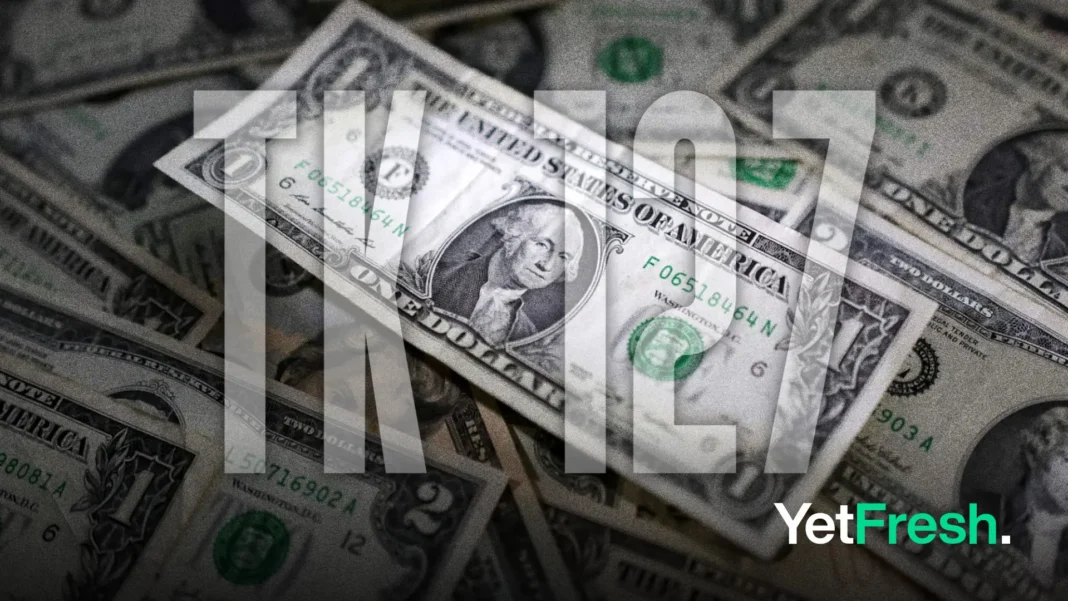Summary:
- The remittance dollar rate in Bangladesh has hit a record high of Tk127, rising sharply by Tk4.50 or 3.67% within December, driven by increased demand and speculative practices.
- Aggregator exchange houses and state banks have significantly influenced the surge, with auction-like sales and overdue payment obligations fueling competition for dollars.
- The central bank’s reduced dollar sales, IMF’s push for a crawling peg system, and seasonal import payment deadlines have further intensified the dollar crisis.
- The kerb market faces severe cash shortages, with rates climbing to Tk127.50, highlighting broader economic pressures and inflation risks.
The remittance dollar rate in Bangladesh has reached an unprecedented high of Tk127, reflecting intensifying economic challenges. This surge, reported by senior officials from six banks, marks the highest rate in the nation’s history, surpassing the previous record of Tk126 set in November 2023. The escalation, particularly sharp since early December, has raised concerns about its impact on inflation and overall economic stability.
In early November 2024, the remittance dollar rate stood at Tk121.80 and gradually increased to Tk122.50 by the end of the month. However, within just 13 working days of December, it surged by Tk4.50, or 3.67%, which banking officials have described as “unusual.” A deputy managing director of a private bank noted that while dollar demand has risen slightly, it does not justify such a sharp price hike.
The rise in the remittance dollar rate is attributed to several factors:
- Aggregator Exchange Houses: These financial intermediaries have been identified as significant contributors to the price hike. They purchase dollars from smaller exchange houses at lower rates and then sell them to banks through an auction-like process, inflating prices.
- Central Bank Policies: Since the interim government took office, the central bank has reduced dollar sales from reserves and started purchasing small amounts from the market. Additionally, pressure from the International Monetary Fund (IMF) to adopt a crawling peg system for exchange rates has fueled speculation about potential market liberalization.
- State Banks’ Activity: State-owned banks have emerged as major buyers in the remittance market to clear overdue foreign payment obligations. Currently, they account for 50% of dollar purchases in this market.
- Seasonal Demand: From September to January, import payment deadlines typically increase dollar demand, with December experiencing heightened pressure.
The soaring dollar rate has also affected the kerb market (informal currency exchange), where cash shortages are prevalent. Exchange houses in areas like Motijheel and Gulshan have reported that many buyers are returning empty-handed due to high prices. The kerb market rate reached Tk127.50, further exacerbating challenges for individuals seeking foreign currency.
The broader economic implications are significant. Treasury heads of private banks warn that this unusual rise will strain inflation control efforts and increase pressure on an already fragile economy. Bangladesh is grappling with multiple challenges, including high inflation, a balance of payments deficit, declining foreign exchange reserves (currently estimated at $20 billion), and a depreciating currency.
Despite these challenges, remittance inflows through formal channels have shown growth. From July to November of the current fiscal year, remittances increased by 26.44% year-over-year to $11.14 billion. State-owned banks absorbed most of this growth, receiving $3.42 billion during this period—a remarkable 217% increase compared to last year.
However, private banks are struggling due to unethical practices by aggregator exchange houses and disparities between official and market rates. The Money Changers Association of Bangladesh set an official dollar rate at Tk120, but sellers report being unable to buy even at Tk126.50.
This situation underscores the need for robust regulatory measures to stabilize the exchange rate and address underlying economic vulnerabilities. Without decisive action, the continued volatility in dollar rates could exacerbate inflationary pressures and further destabilize Bangladesh’s financial ecosystem amidst ongoing economic headwinds.
Source: TBS News




